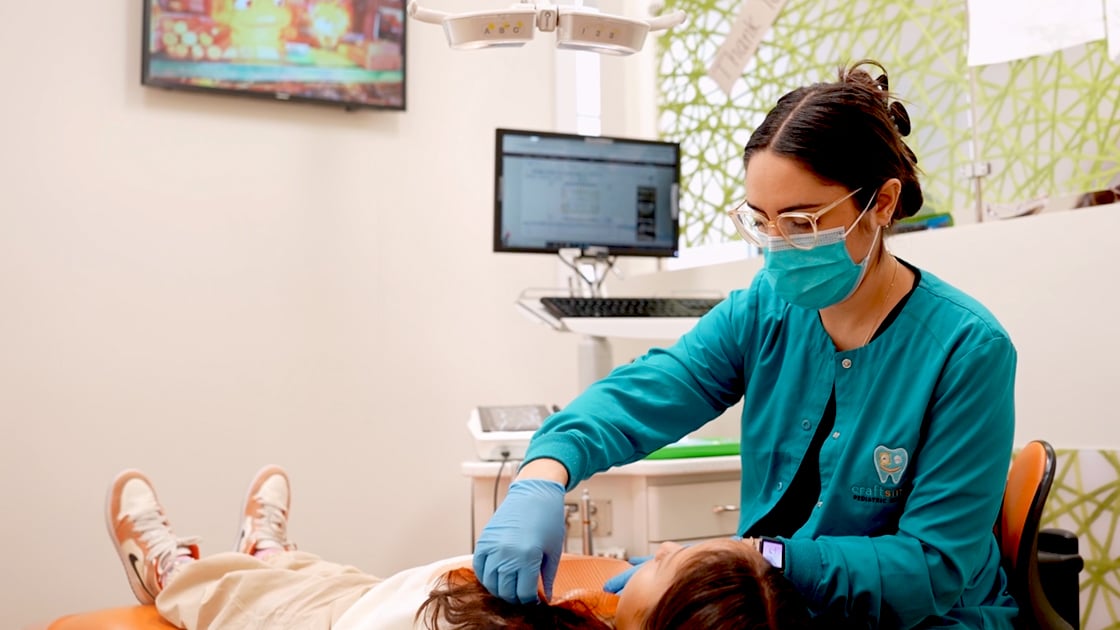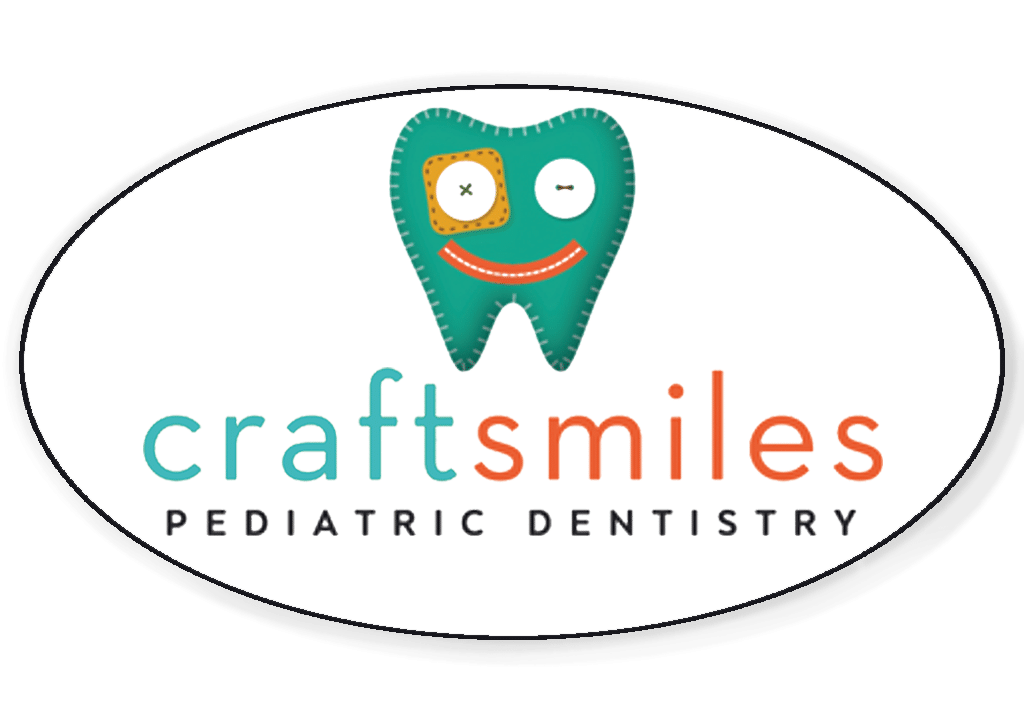
First Visit
According to the American Dental Association and the American Academy of Pediatric Dentistry, a child’s first dental check-up should occur between the ages of 6 months to one year. For the slightly older child, informing your child about their first dental visit is very helpful. You can read books and show them pictures. At your child’s first visit, your child will meet the dentist and hygienist and have everything explained to him/her. Depending on your child’s age, the visit may include a full exam of the teeth, jaws, bite, gums, and oral tissues to check growth and development as well as a cleaning and fluoride treatment. Radiographs (x-rays) are taken only if necessary.
The dentist or hygienist will direct you on how you can help us to examine and clean your child’s teeth in a position that is the most comfortable for you and your child. The exam and any findings will be reviewed with you and advice will given to help your child’s teeth remain healthy.
We look forward to meeting you and your child for your first appointment!
Importance and Care of Primary Teeth (Baby Teeth)
Baby teeth, also called primary teeth, are shed, but they are still very important for several reasons. Children need strong, healthy baby teeth to chew food properly, pronounce words correctly, and maintain space in the jaw for permanent teeth. This is why it is important to take good care of the primary teeth by keeping them clean and healthy.
Even before the first tooth erupts, your child’s gums should be wiped gently with a wet cloth or gauze after every feeding. At the appearance of the first tooth to age 3 years, the American Academy of Pediatric Dentistry (AAPD) recommends brushing your child’s teeth with a smear or rice sized amount of fluoride toothpaste. Children older than 3 years should be supervised during brushing to ensure that only a pea-sized amount of fluoride toothpaste is used, and that the toothpaste is spit out rather than swallowed. Rinsing with water afterward is not necessary as it allows the fluoride to remain on teeth for optimal absorption and protection. Fluoride mouth rinse can be used when a child can spit.
Preventing Decay
Primary teeth, if not kept clean and healthy, can develop decay. This decay can lead to infection, which can damage permanent teeth or lead to space loss if the teeth are lost early. Tooth decay in infants and young children often occurs when the teeth undergo frequent and extended exposure to liquids containing sugar. To keep your child’s teeth cavity free and avoid oral pain, do not allow your child to fall asleep with a bottle containing anything other than water. Milk, formula, and juice, when given to a child right before they fall asleep, can remain on the teeth and cause tooth decay. If your child needs a pacifier between feedings or at bedtime, give them a clean pacifier. Do not give your child a pacifier dipped in honey or sugar.
